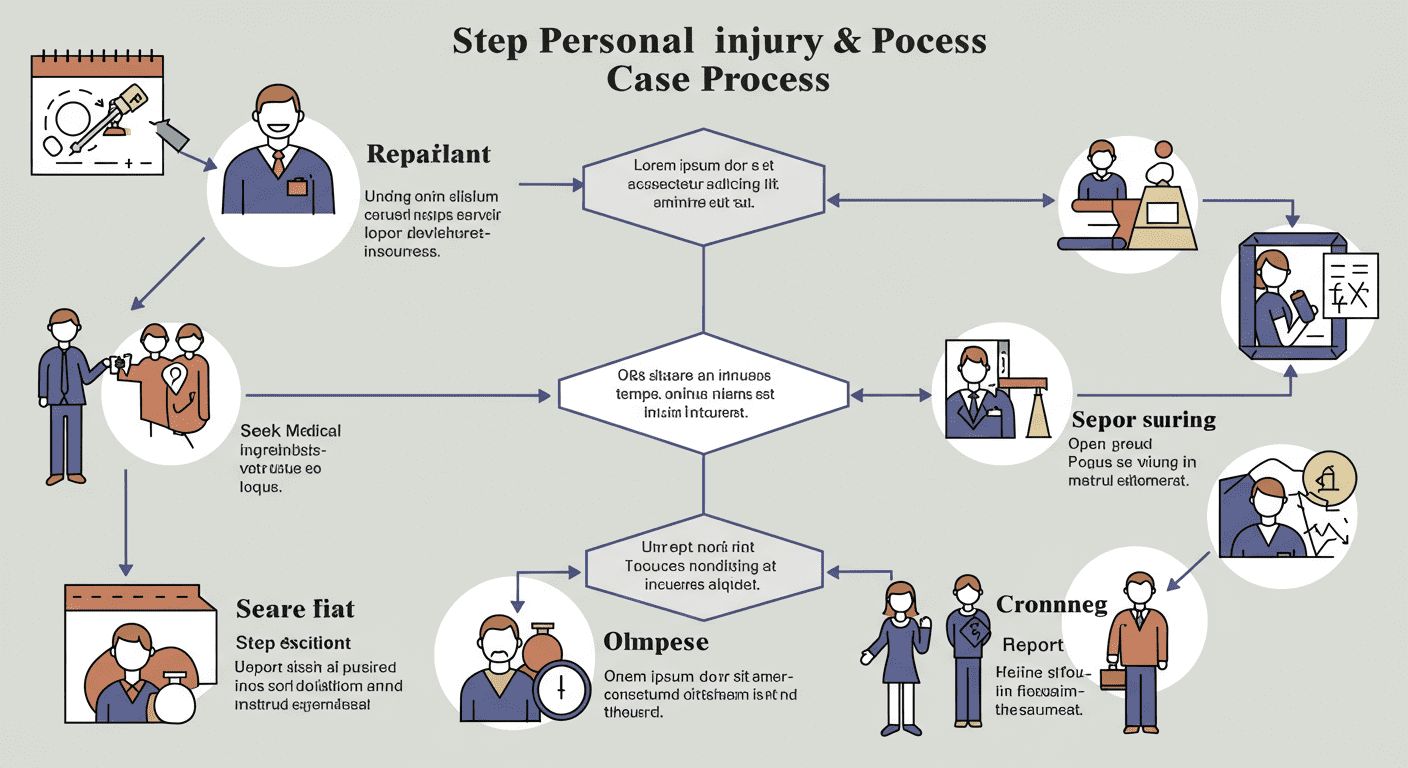When faced with a personal injury in Hendersonville, TN, understanding the legal process can feel overwhelming. Whether it’s a car accident, slip and fall, or workplace injury, knowing what to expect can make all the difference in achieving a favorable outcome. This guide breaks down the personal injury case process, providing clarity and actionable steps to help you navigate your claim successfully.
Understanding Personal Injury Claims in Tennessee
Overview of Personal Injury Law
Personal injury law in Tennessee is designed to protect individuals who have suffered harm due to someone else’s negligence. This legal framework allows victims to seek compensation for medical expenses, lost wages, and emotional distress. Tennessee operates under a “comparative fault” rule, meaning your compensation may be reduced if you are found partially at fault for the incident. Understanding these nuances is essential to building a strong case.
Common Types of Personal Injury Cases
In Hendersonville, TN, personal injury claims often arise from car accidents, slip and falls, medical malpractice, and workplace injuries. Each case type has unique challenges, such as proving negligence or gathering evidence. For example, car accident claims may require police reports and witness statements, while medical malpractice cases often hinge on expert testimony. Knowing the specifics of your case type can streamline the process.
Key Steps in the Personal Injury Case Process
Reporting the Accident
The first step in any personal injury case is reporting the incident to the appropriate authorities. For car accidents, this means contacting the police and filing an official report. In workplace injury cases, you must notify your employer immediately. Timely reporting not only ensures compliance with Tennessee laws but also creates a formal record that can be used as evidence.
Seeking Medical Treatment
Your health should be your top priority after an injury. Seek medical attention immediately, even if your injuries seem minor. Medical records serve as crucial evidence in personal injury cases, documenting the extent of your injuries and linking them to the incident. Delaying treatment can weaken your claim and give the opposing party grounds to dispute your injuries.
Gathering Evidence
Evidence is the backbone of any personal injury claim. This includes photographs of the accident scene, witness statements, medical records, and any correspondence related to the incident. In some cases, hiring an investigator can help uncover additional evidence, such as surveillance footage or expert opinions. The more comprehensive your evidence, the stronger your case will be.
Contacting an Attorney
Navigating the legal complexities of a personal injury case is challenging without professional help. An experienced attorney can guide you through the process, from filing paperwork to negotiating settlements. They can also help you understand your rights under Tennessee law and ensure you meet all deadlines, such as the state’s one-year statute of limitations for personal injury claims.
The Role of an Attorney in Your Personal Injury Case
Importance of Legal Representation
Hiring an attorney can significantly impact the outcome of your case. Legal professionals have the expertise to assess the value of your claim, negotiate with insurance companies, and represent you in court if necessary. They also provide emotional support, allowing you to focus on recovery while they handle the legal intricacies.
How Attorneys Build Your Case
Attorneys play a pivotal role in gathering and presenting evidence. They may consult medical experts to validate your injuries, interview witnesses to corroborate your story, and analyze accident reports for inconsistencies. Additionally, they handle all communication with insurance companies, ensuring you are not pressured into accepting a low settlement offer.
What to Expect During the Litigation Process
Filing a Lawsuit
If negotiations with the insurance company fail, your attorney may recommend filing a lawsuit. This involves submitting a formal complaint to the court, outlining the details of your case and the compensation you seek. The defendant will then have an opportunity to respond, either by agreeing to a settlement or preparing for trial.
Discovery Phase and Negotiations
The discovery phase is a critical part of the litigation process, where both parties exchange evidence and gather information. This phase often includes depositions, document requests, and interrogatories. While discovery can be time-consuming, it often leads to settlement discussions, as both parties gain a clearer understanding of the case’s strengths and weaknesses.
Trial Process and Settlements
If your case proceeds to trial, a judge or jury will evaluate the evidence and determine the outcome. Trials can be unpredictable, but they also offer the opportunity for a higher compensation award. However, many personal injury cases are resolved through settlements before reaching this stage. Your attorney will advise you on whether to accept a settlement offer or proceed to trial based on the specifics of your case.

Conclusion
Navigating the personal injury case process in Hendersonville, TN, requires a clear understanding of the steps involved and the legal framework governing these claims. From reporting the accident and seeking medical treatment to gathering evidence and working with an attorney, each stage is crucial to achieving a favorable outcome. By following this guide and seeking professional legal representation, you can confidently pursue the compensation you deserve.
For more insights on legal services, check out Expert Legal Advice for Nashville-Davidson Residents: Your Guide to Finding the Right Law Firm. If you’re looking for trusted legal representation, explore Top Injury Accident Law Firm in Waco, TX: Your Trusted Legal Partner for Justice.




